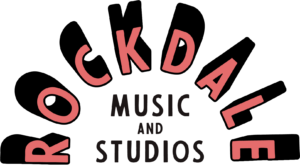
Music produces a kind of pleasure which human nature cannot do without.
- Confucius
Keep Your Mind Active – Don’t sit around all day playing video games and turning your brain to mush. Studies show that playing an instrument changes the shape and power of the brain and can raise your IQ by up to 7 points! Research has also shown that playing an instrument increases the capacity of your memory. What were we just talking about?
Retain the Skills You Learned – Each year students learn new skills in their music lessons, which are essential to their growth as a musician. These are quickly and easily lost when we let our instruments collect dust all Summer. Becoming a musician is like building a house. If the foundation is weak the house comes a tumbling down. Fundamentals, reading and technique are the first things we lose when taking an extended break from regular playing.
Work on Problem Areas – Summer is a great time to work on problem areas in your playing. Whether it is with rhythm, keeping time or a particular song or solo you want to learn, summer is the perfect time to hone those skills! Practicing can be less regimented during the Summer and students are more at ease without the normal load of school work and things “click” easier.
Build Self-Confidence and Learn Perseverance & Discipline – Overcoming musical challenges that you thought you couldn’t master can give you great sense of pride. Learning to play an instrument takes time and effort. Practicing often and working on technique and new material requires perseverance. The best musicians are the ones who have mastered discipline!
Practice the Music You Want to Learn – There is no marching band, no jazz band, no ROCK BANDS, so you can learn to play the songs you want! Maybe try some fingerpicking guitar or learn to program a synthesizer!
Reduce Stress – Listening to and playing music can promote stimulation to areas of the brain that promote increased joy and decreased stress. Whenever I am stressed or bummed out I pick up a guitar or grab my sticks and bang on the drums. My own brand of music therapy!
Boost Listening Skills – Playing an instrument requires careful and focused listening skills. You have to learn to hear when you are playing a wrong note in order to correct it and tuning your instrument means hearing if the pitch you are playing is sharp or flat. When playing in a group musicians learn to listen for the melody and play softer to accompany the lead. Good listening skills are essential to be a reflective and thoughtful musician.
Make Friends and Work Together – Playing music means that you already have a bunch of potential friends with similar interests. Working out parts and learning to play together with other musicians is the most rewarding part of playing music. To this day, some of my closest friends are the people I started jamming with in middle school!
More Time to Practice – NO HOME WORK, NO TESTS, NO CHORES… Just kidding! We aren’t telling you to stay inside all Summer working on riffs in the wood shed, but there’s no better rainy day activity than having a jam session with some buddies in the garage or basement. Trust us, there’s nothing on TV anyway.
Flexibility to Try New Things and Experiment – Get Weird! I spent a Summer in High School devoted to learning double-bass drum patterns (music nerd) and some of the best stuff I’ve written came when thinking outside of the box and breaking the “rules”… once you learn them all!